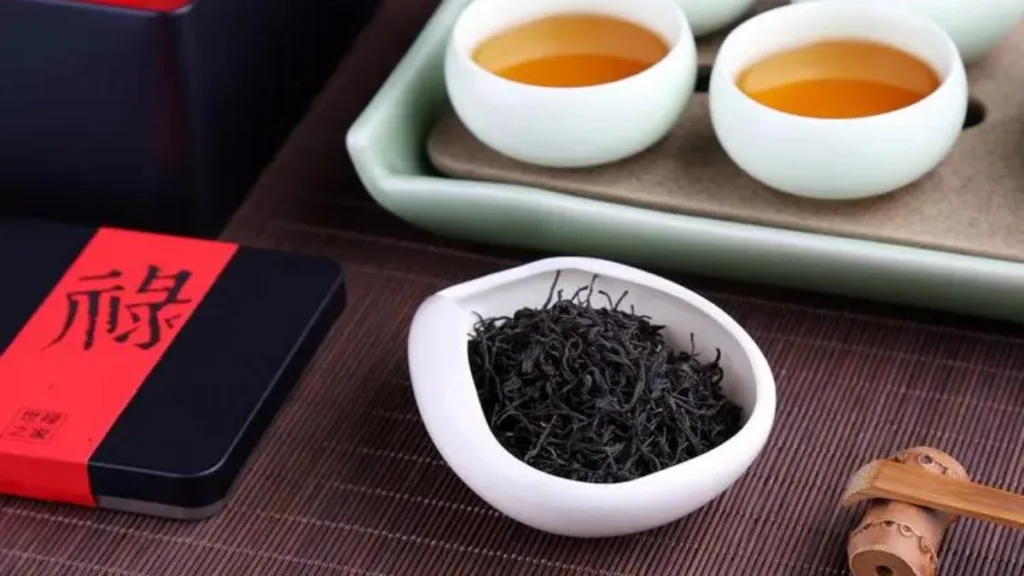Pregnancy is a time when a woman’s body undergoes numerous changes, and dietary considerations become crucial for the health of both the mother and the developing baby. Among the many beverage choices, black tea, a beloved drink for many, raises questions about its suitability during pregnancy. This article aims to explore the safety and considerations surrounding the consumption of black tea during pregnancy.
The Beneficial Components of Tea:
Tea leaves contain various beneficial compounds, including tea polyphenols and vitamin C. Tea polyphenols possess antioxidant, anti-inflammatory, and antibacterial properties, contributing to the prevention of chronic diseases such as cardiovascular issues and diabetes. Meanwhile, vitamin C offers benefits like skin whitening and immune system enhancement, making it advantageous for the overall health of pregnant women.
I. Can Pregnant Women Drink Black Tea?
The traditional Chinese perspective categorizes pregnant women as individuals with a “fire basin” before childbirth and an “ice basin” afterward, indicating a tendency towards a warm constitution. Hence, it is recommended for pregnant women to consume cool-natured teas such as green tea, clear teas (like Tie Guan Yin), and floral teas. However, black tea, being a fully fermented tea with a predominantly red-hued infusion, is generally considered safe for consumption during pregnancy.
It is crucial, however, to moderate the intake of black tea. Excessive consumption can introduce caffeine and other compounds that may impact fetal brain development. Additionally, brewing black tea too strongly or consuming it too frequently can lead to excessive stimulation for both the mother and the fetus, potentially hindering proper growth and development.
The presence of tannic acid in tea leaves is another consideration. Drinking overly concentrated tea, including black tea, may lead to the formation of insoluble tannic acid-iron complexes, potentially contributing to pregnancy-related anemia and iron deficiency in the developing baby.
Therefore, while the answer to whether pregnant women can drink black tea is generally affirmative, it is advised that they do so in moderation. Opting for lighter brews of black tea is recommended as it promotes blood circulation, aids digestion, and offers benefits to the baby’s growth and development.
II. Considerations for Pregnant Women Drinking Black Tea:
- Moderation is Key: Pregnant women should exercise moderation in their black tea consumption. Generally, a daily intake of 2-5 grams of tea leaves is considered sufficient to reap the benefits without exposing the mother and baby to potential risks.
- Avoiding Strong Brews: The caffeine content in strongly brewed black tea can stimulate the gastrointestinal tract, causing discomfort such as stomach pain and palpitations. Pregnant women are advised to choose milder brews to minimize the negative impact on both their bodies and fetal development.
- Timing Matters: Drinking tea on an empty stomach should be avoided, as it may stimulate the gastrointestinal tract and lead to symptoms like stomach pain and diarrhea. Instead, it is recommended to consume tea about 30 minutes to an hour after meals to reduce the burden on the digestive system.
- Freshness is Essential: Consuming freshly brewed tea is crucial. Overnight tea may harbor more bacteria and harmful substances, which can be detrimental to the health of both the mother and the developing fetus.
- Be Mindful of Medications: Tea ingredients may interact with certain medications, affecting their efficacy. Pregnant women should consult with their healthcare providers before consuming tea if they are taking any medications.
In terms of tea selection, green tea and floral teas are generally suitable for pregnant women due to their rich vitamin C and polyphenol content. Red tea, with its lower caffeine content, can also be a favorable choice. However, it is advised to avoid strongly stimulating teas like Oolong and Pu-erh during pregnancy.
Conclusion:
In conclusion, the question of whether pregnant women can drink black tea is met with a cautious yes. While black tea offers potential health benefits, including antioxidants and vitamins, it is crucial to approach its consumption with moderation and mindfulness. Adhering to these guidelines ensures that the joy of sipping a cup of black tea can coexist with the health and well-being of both the expectant mother and her developing baby.



